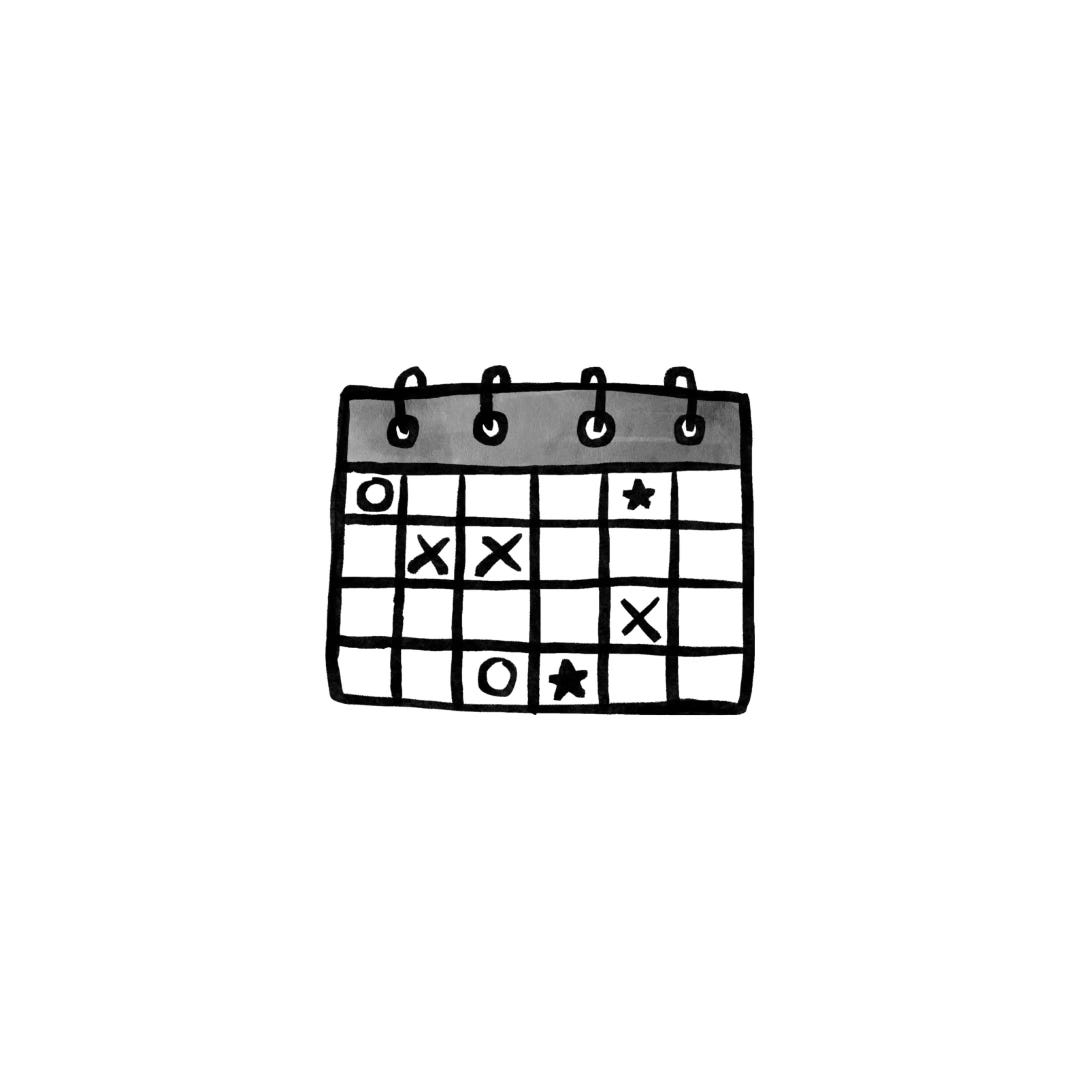Welcome, my dear.
Below you will find three exercises to help you write. Spread them out over several days. Skip the parts that don’t inspire you. Ask questions in the comments. Don’t overthink anything. You’re just scrabbling around with language. See what comes.
There are Lovely Words for you at the end.
Start with what happened
The events of the storm are likely jumbled in your memory. At your house it started really raining when? The water started rising by...? The power went out at what time? You left your home. You finally hugged someone. Then the generator ran out of gas? You took a hot shower. You cried. Work started again which day? You cried again. You yelled at someone. When did your favorite restaurant announce if they were opening again? Being able to see some order within the mess of Helene can help you separate out the most tender or difficult parts that need attention. It can also make the chaos feel more manageable.
Organize the details. The goal is to remember the order in which you lived through the events of the storm, but it’s okay to approximate times, even days. Don’t get bogged down and forgive your brain for what it can’t recall. Some ideas:
Create a timeline. Get yourself a BIG sheet of paper. A paper grocery bag cut open and flipped to the inside makes a nice long writing space. Tape several pieces of paper together. Give yourself lots of space to keep adding memories as they come.
Use a paper or digital calendar. I’ve created a blank template you can print and fill in. Make your own. Use the calendar you already have. Use your online calendar.
Make a list of days/times and what happened. This works well if you’re writing digitally because you can add new items easily. If you write this one on paper, leave lots of blank space between entries to fill in as you remember more AND be okay with a messy page.
(My advice: Take your time with this part of the exercise before moving on to part two. Add to it a little bit at a time over the course of days. When in doubt, write it down.)
Add reflective thoughts, patterns, themes; identify a through-line; make meaning in the chaos. Grab different colored pens, markers, or highlighters. If you’re online, switch font colors. Write in the margins and all around. Let this get messy. Some ideas:
Who was with you? Where were you? What were you feeling? When did things shift for you? When did they shift again (and again?)
Think about your physical situation, your mental state, your ability to have patience with people and systems, etc.
Create a scale of how frustrating, surprising, ridiculous, scary the moments were and assign them numbers.
Add emojis that reflect your inner dialogue about certain moments. Annotate the events as if you were the omniscient narrator of your life.
Imagine your life is a comedy sitcom, what are the parts that would make it into an episode or a season? What if it were a drama? A dark comedy? A suspenseful thriller? A musical?
Reflect? You could stop with what you’ve already done. You have potentially written quite a bit and you’ve definitely done some heavy lifting in terms of recall. Seriously, it’s enough and it counts as “writing”. But if you’ve still got energy after parts one and two and want to do more, here’s what you might do:
Write yourself a note or a series of messages, the ones you needed to receive at various times since the storm.
Maybe there’s a poem hidden in all those bullet points?
Play with the idea of someone dramatizing the last month or so. What’s the show called? Who would you cast? Write the blurb to get audiences tuned in.
Start with the words you used in the beginning.
Maybe you were lucky and you could call the outside world soon after the storm. Maybe all you could do was text. Likely at some point, you were sending the same message over and over to everyone who reached out to you, giving them an update and reassuring them you were okay. Or that you weren’t.
Go back and find the those messages. Copy them onto your page or into a new document. Sit with them as artifacts of your experiences. Bring curiosity to what they reveal about what you went through and how you were feeling at the time. You might see something in your own words now that you couldn’t see then.
Use the questions below to start writing:
When did you first make contact with the outside world? Who’d you call or text? How were you feeling at the time? Where were you? Who were you with?
Looking at the message(s): What didn’t you say or what were you downplaying at the time? If you could go back and edit the messages, what would you add or change now?
Did you hear from unexpected people or receive unexpected responses? How do you wish people had responded to the messages you sent?
Start with a key moment
Have you ever seen the key ring of a custodian?
So many keys! So loud and cumbersome but necessary. If one has all the keys on such a keyring, you can get yourself into and begin to understand a whole building. But, in order to do that, you have to open one door at a time, consider one room at a time.
Let’s extend that image of the very full key ring to your experience of the storm. There are Key Moments from your Helene days, moments that stick out as particularly telling of your unique experience of the storm. And you might want or need to write about all of those in order to tell your story of what happened. If your Memory of Helene Building seems overly full of such Key Moment Rooms, that’s fine. It’s fine.
Let’s see if you can write out the whole experience of a single moment. Just one! Each week there will be a different prompt to try and draw out one of these key moments for you.
Finish the sentence however it feels right: a prose story, a song, a poem, a list, a doodle, a mock newspaper article, a journal entry that is a bit of a jumble
I never imagined that my life would include…
Lovely Words
Watch a video interpretation by paper artist Pearl Taylor here. Read more about the poet here. Note that it’s an old interview.
Go to the Limits of Your Longing
by Rainer Maria Rilke, translated by Joanna Macy
God speaks to each of us as he makes us,
then walks with us silently out of the night.These are the words we dimly hear:
You, sent out beyond your recall,
go to the limits of your longing.
Embody me.Flare up like a flame
and make big shadows I can move in.Let everything happen to you: beauty and terror.
Just keep going. No feeling is final.
Don’t let yourself lose me.Nearby is the country they call life.
You will know it by its seriousness.Give me your hand.
Book of Hours, I 59
(Want to hear it read by Joanna Macy? Go here.)
The Weighing
by Jane Hirshfield
The heart's reasons
seen clearly,
even the hardest
will carry
its whip-marks and sadness
and must be forgiven.As the drought-starved
eland forgives
the drought-starved lion
who finally takes her,
enters willingly then
the life she cannot refuse,
and is lion, is fed,
and does not remember the other.So few grains of happiness
measured against all the dark
and still the scales balance.The world asks of us
only the strength we have and we give it.
Then it asks more, and we give it.
From The October Palace (HarperCollins, 1994)
Read more from the poet about creativity and effort here. Hear this poem read here.










Lauren. This is a masterpiece for all of us.🩵💙🌎🌱
I know you wrote the guide for those of us who endured hurricane Helene. Yet your work looks powerful for anyone who has gone through an Earth tragedy. Thank you.
This is a brilliant offering, helping people to tell their story in a healing way. Love the poems here too. Very moving post💚